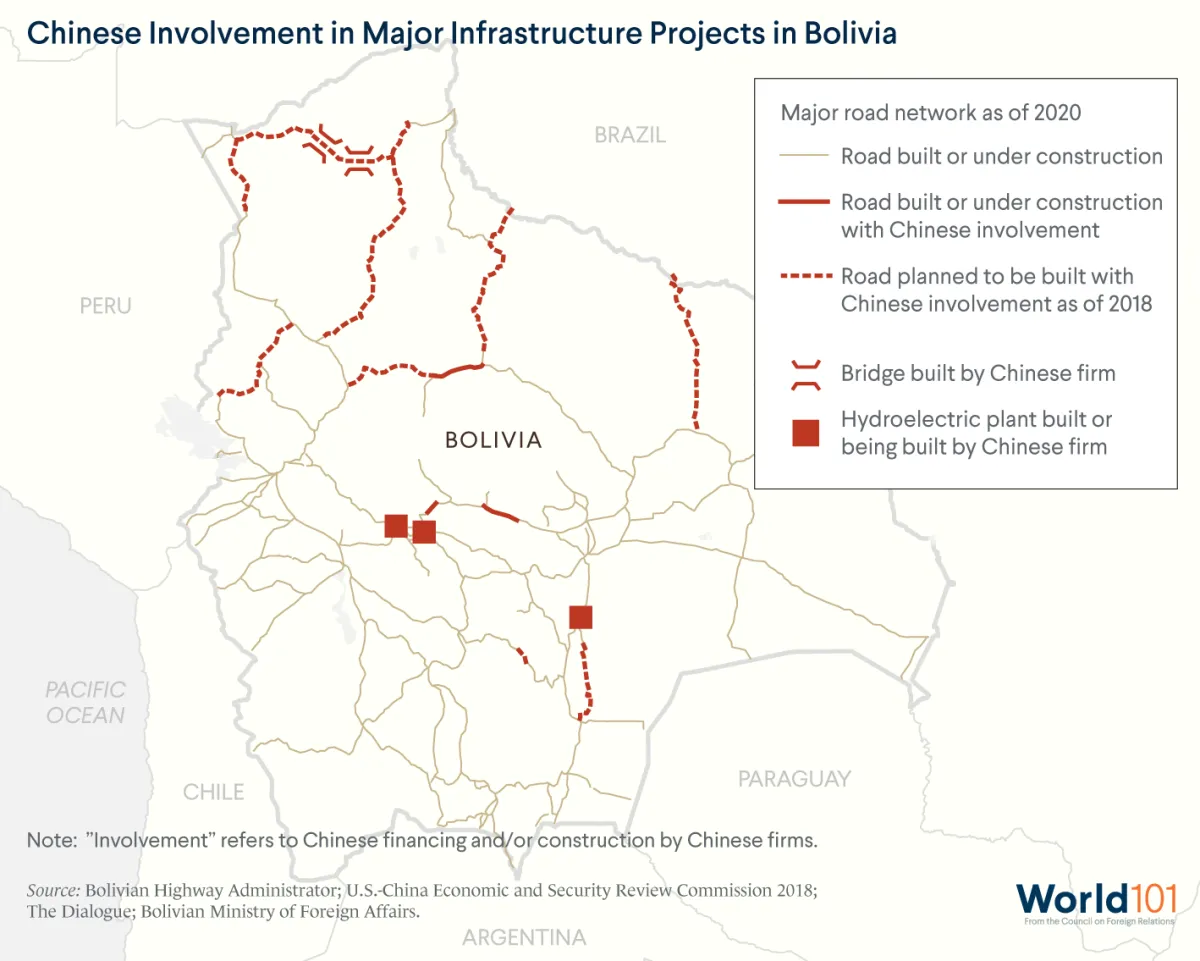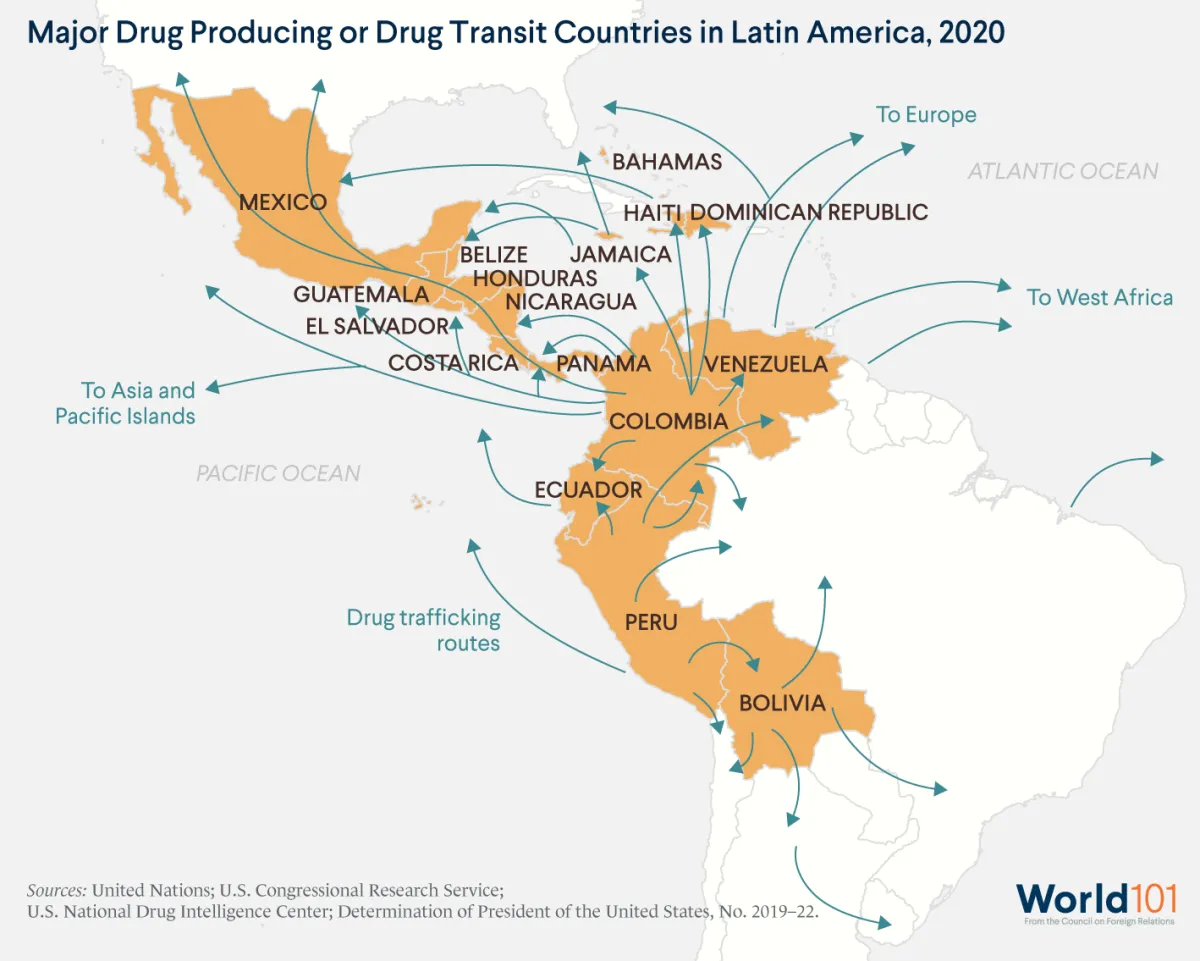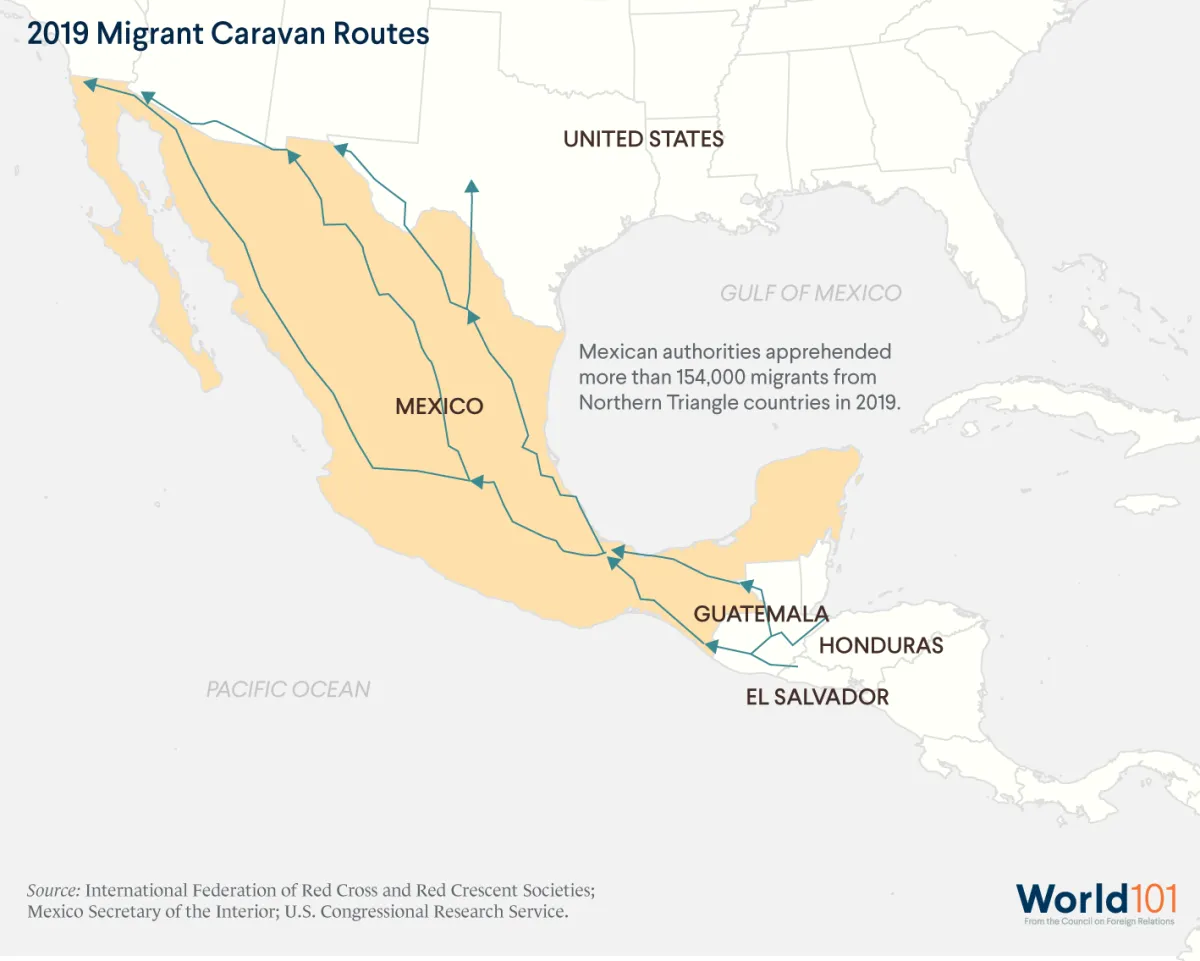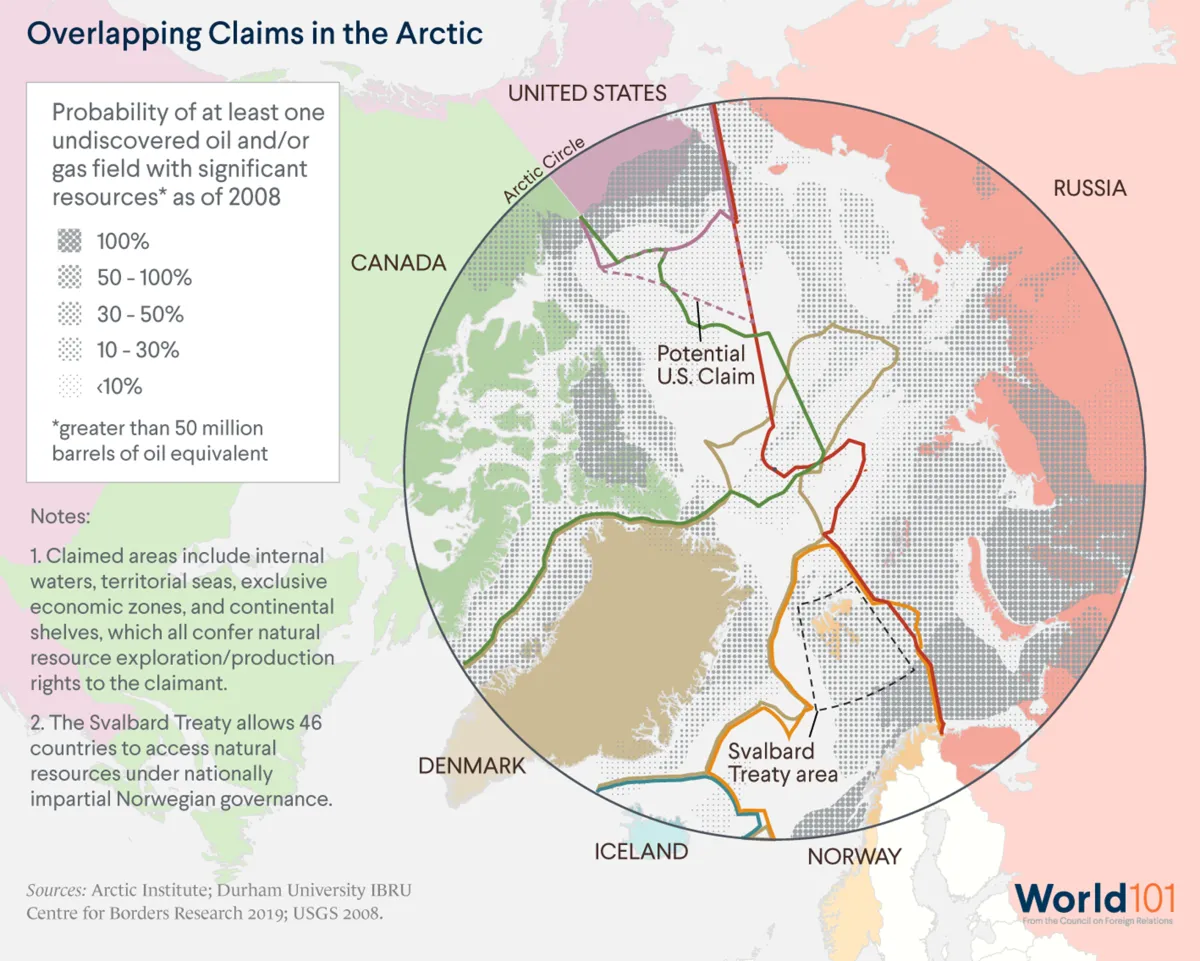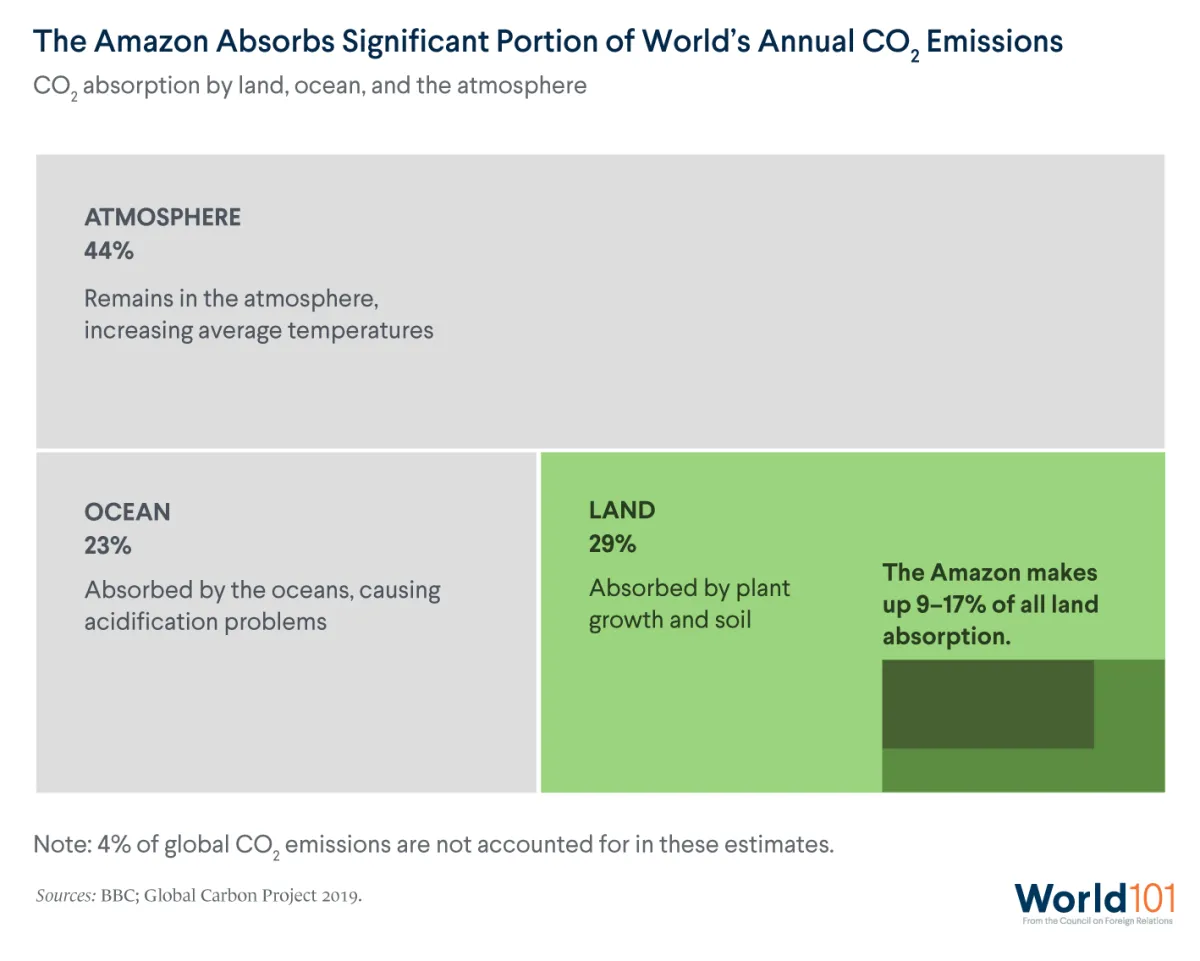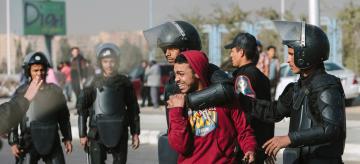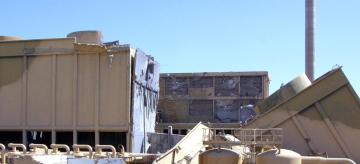Geopolitics: The Americas
Throughout the modern history of the Americas, the United States has been the region’s preeminent economic, military, and political power.
Throughout the modern history of the Americas, the United States has been the region’s preeminent economic, military, and political power. In this time, there have been relatively few wars or acts of terrorism in the Americas. That is not to say, however, that the region has been free of geopolitical challenges. Transnational issues such as the drug trade, mass migration, and political instability have produced decades of conflict, which the United States and other regional leaders have struggled to address. What’s more, China is increasingly challenging the United States’ influence in the region through trade, diplomacy, and even a race to explore a warming Arctic Circle’s newly accessible natural resources.
United States Shapes Americas With Outsize Influence
The United States is the most powerful country in the Americas. It has sought to play this role since the 1800s, when President James Monroe warned European powers against interfering in the region. Nearly one century later, President Theodore Roosevelt added to Monroe’s warning by promising to intervene in any regional country the United States saw as weak, unstable, or in any other way vulnerable to foreign influence. Today, the United States is Latin America’s top trading partner, accounting for more than twice as much trade as the next-largest partner, China. Politically, the United States makes decisions that shape the region, from crafting new immigration policies to rewriting trade deals. And in terms of security, the United States—the region’s lone nuclear power—is also the Americas’ undisputed military heavyweight, spending over six times more on defence than the rest of the region combined. The United States has long sought to exert influence throughout the region—especially during the Cold War, when the United States aided coups and supported pro-American strongmen in a bid to ward off communism.
China Increases Influence Across Latin America
China has emerged as an increasingly important partner for Latin America in matters of diplomacy, security, and economics over the past two decades. Chinese investment in Latin America largely involves raw materials like minerals, soybeans, and petroleum. In addition, in recent years Chinese businesses have begun financing infrastructure projects across Latin America as part of the Chinese government’s Belt and Road Initiative to fund infrastructure worldwide. For example, since 2005 Chinese companies have won contracts to build around twenty new ports across the region, and they have pursued at least another twenty road and bridge construction projects in Bolivia alone. Chinese state-owned banks are also the largest lenders to Latin American governments and businesses, lending over $140 billion since 2002. This growing economic leverage can have political consequences. In 2017 and 2018, the Dominican Republic, El Salvador, and Panama stopped recognizing Taipei as the legal government of China and instead chose to establish diplomatic relations with Beijing.
Regional Drug Trade Leaves Deadly Toll
The region’s illicit drug trade produces tremendous violence and results in tens of thousands of overdose deaths each year. From production to distribution, this challenge spans the Americas. The coca crop, for instance, is grown predominantly in South America, refined into cocaine, and smuggled across the Americas, mainly to the United States—the Americas’ largest drug consumer. Throughout this process, criminal cartels incite extensive violence, often fueled by guns and weapons that are smuggled from the United States. In 2018, more than thirty-three thousand people died in Mexico, many from drug-related violence. Meanwhile, Latin American cartels produce and smuggle drugs like heroin into the United States, where opioid overdoses kill more than nine hundred people weekly. Mexican cartels have also begun producing a new synthetic opioid called fentanyl with chemicals obtained from China. Fifty times stronger than heroin, fentanyl has rapidly spread throughout the United States in recent years, causing more than thirty-two thousand deaths in 2017 alone.
Cuba Challenges Political Isolation Through Doctor Diplomacy
Despite being an isolated, authoritarian country of just eleven million people, Cuba remains active internationally through a crucial export: doctors. The country has the most physicians per capita in the world, and in 2018 Cuba exported fifty thousand doctors to work in nearly seventy countries. Shortly after its 1959 revolution, when the new communist government implemented free education and universal health care, Cuba began sending an “army of white coats” to allies abroad. Cuba uses its doctor diplomacy to generate around $11 billion per year and—since the country suffers regular shortages of basic goods—to barter for discounted commodities. For example, in Venezuela, a strong Cuban ally, thousands of Cuban doctors work in exchange for cheaper oil. The program is not without criticism, though: some doctors accuse Cuba’s government of pocketing much of their salaries, and others have expressed discomfort at working in Venezuela, claiming they were instructed to provide care only to patients supportive of the Maduro regime.
Mexico Curbs Central American Migration to United States
Mexico has transformed from a major source of undocumented immigration to the United States to an important U.S. partner in limiting such migration. In 2018, approximately 150,000 Mexicans were apprehended at the U.S. southern border, down from a peak of over 1.6 million twenty years ago. Beginning in 2014, migrants from the Northern Triangle countries of El Salvador, Guatemala, and Honduras outnumbered migrants from Mexico for the first time. President Barack Obama worked to apprehend Northern Triangle migrants in Mexico rather than in the United States by funding and training Mexican border enforcement agencies. Although this led to a dip in apprehensions at the southern border, it also led migrants to try different, more dangerous routes to the U.S. border. When the number of migrants from Northern Triangle countries entering the United States began rising yet again in 2018, President Donald J. Trump responded the following year by announcing that Mexico had agreed to hold asylum applicants waiting for U.S. hearings and to deploy the Mexican National Guard to its northern and southern borders to intercept migrants after the United States threatened to impose tariffs on Mexican goods.
Americas Lack Meaningful Regional Cooperation
Few regional organizations foster meaningful cooperation in the Americas. The Organization of American States (OAS), founded in 1949 to promote democracy, human rights, security and economic development and headquartered in the United States, is seen by some Latin American countries as a vehicle of U.S. interests. Both the OAS and the Lima Group, another regional organization, have called for Venezuela’s authoritarian leader Nicolás Maduro to step down, to no avail. To counter U.S. influence, several Latin American governments founded the Union of South American Nations (UNASUR) in 2008 and the Community of Latin American and Caribbean States (CELAC) in 2011. Both organizations have only met a handful of times and recently received sharp criticism for failing to intervene in the Venezuelan humanitarian crisis. UNASUR fell apart after more than half of its countries suspended their membership in 2018. To replace it, the right-wing leaders of Argentina, Brazil, Chile, Colombia, Ecuador, Guyana, Paraguay, and Peru founded the Forum for the Progress and Development of South America (Prosur), another regional organization intended to foster political cooperation. Many experts worry that Prosur will become too ideologically tied to right-wing policies and will be unable to foster greater regional unity.
World Divided on Venezuela’s Political Crisis
Venezuela is in the midst of a political crisis that has divided the country and the world. In January 2019, Juan Guaidó, the National Assembly opposition leader, declared Nicolás Maduro’s presidency illegitimate and called for a new caretaker government. Today, both Guaidó and Maduro claim to be Venezuela’s legitimate president. Most Latin American countries, the European Parliament, and the United States recognize Guaidó’s claim. The United States has spearheaded sanctions against Maduro’s government, which refuses to cede power. The Trump administration briefly suggested that military intervention against Maduro was under consideration, and in March 2020 it indicted Maduro on narcoterrorism charges. On the other side, China, Cuba, and Russia support the Maduro regime, a reliable trading partner, providing military advisors to protect his government and purchasing Venezuelan oil and goods in opposition to the U.S.-led sanctions. Regional and international organizations have proved ineffective at mediating this political stalemate, which has exacerbated an economic and humanitarian crisis in Venezuela marked by massive food shortages and the flight of millions from their homes.
Global Warming Brings Competition to Arctic
Countries are beginning to compete over previously inaccessible natural resources and trade routes in the Arctic Circle as climate change raises global temperatures and melts away ice. The changing Arctic landscape is revealing vast deposits of oil, natural gas, and other valuable rare earth minerals. Meanwhile, melting ice is opening new sea routes, which could allow boats to shave weeks off their journeys, lowering international shipping costs. Eight countries around the world border the Arctic and use different strategies to advance their national interests there. In the Americas, Canada runs annual Arctic military drills, while the United States conducts extensive scientific experiments to better understand the region believed to be home to 13 percent of the world’s undiscovered oil deposits and 30 percent of undiscovered natural gas reserves. Beyond the Americas, Russia is developing a more aggressive Arctic strategy, claiming territory around the North Pole. Even China—which does not border the Arctic—is expanding its footprint by pouring money into new natural gas extraction infrastructure along Russia’s Arctic coastline.
Why the Amazon Fires Are the World’s Problem
The Amazon Rainforest defends the world against climate change, absorbing billions of tons of carbon from the atmosphere. But as deforestation rages, scientists warn the forest could instead become a major carbon emitter, with potentially dire consequences for the planet. In Brazil, home to over half of the rain forest, deforestation rates spiked after the 2018 election of President Jair Bolsonaro, who has questioned climate science and ran on a platform of opening up the Amazon to economic development. Ranchers and farmers began setting fires to make land suitable for their activities, and between August 2018 and July 2019 the Amazon lost land equivalent to twelve times the size of New York City. World leaders have previously helped fund the Amazon’s conservation. In 2019, alarmed by the Amazon’s raging fires and their global repercussions, they extended Bolsonaro an additional offer of $22 million to control the situation. But Bolsonaro initially declined, insisting it was his country’s right to manage the Brazilian Amazon. Given the global climate ramifications of the loss of the rain forest, some experts believe that penalties—such as tourism boycotts, sanctions, and tariffs—could be necessary if Brazil refuses to contain this situation.

